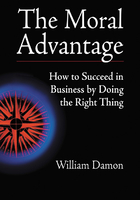Colonel Mulvaney, the regimental commander, ponderously made his way up the single aisle between the captains, majors, and lieutenant colonels who stood at attention waiting for him to reach his empty place at the front of the rows of folding chairs. The humid air in the tent smelled of mothballs. When he reached his chair, Mulvaney grunted to Major Adams, who crisply asked the men to take their seats.
Mulvaney picked up the briefing sheets that had been placed on his chair and shuffled through them. His mind was on the recent discussion with the division chief of staff about the coming combined cordon and search operation at Cam Lo. It "must use ARVN troops and the local militia." It would be "highly conspicuous and highly political" -and, in Mulvaney's view, highly impractical. He'd been asked to give two battalions. After his vehement argument against it, including a colorful analysis of the effectiveness of ARVN, the Army of the Republic of Vietnam, he'd been ordered to give two battalions.
Major Adams cleared his throat. Mulvaney sighed, eased his large body back into the chair, and nodded at Adams, who immediately turned to a large map and indicated with a pointer.
"Contact occurred today at eleven-forty-seven hours, at grid coordinates 689558, between a squad-size unit from Bravo Company One Twenty-Four on a routine security patrol, and an estimated ten to fifteen Vietnamese. Two confirmed kills, one probable. No injuries reported from Bravo Company. Artillery fire was called in with two confirmed kills and one probable reported. The weather prohibited air strikes." The major turned to face Mulvaney.
Mulvaney knew he should ask a question. It annoyed him that Adams kept saying One Twenty-Four all the time, as if after twenty-six years in the Marine Corps he wouldn't know that Bravo Company of his own regiment was in the first battalion. He nevertheless kept his temper, remembering his wife, Maizy, who even at the airport had cautioned him again to keep his temper, not only for the sake of the men under him but also for the sake of his career. A fucking combined operation with the South Gooks. Sitting around a goddamned village while their goon squads went in and roughed up the civilian political opposition. Again he remembered that people were expecting a question.
"Any intelligence gathered?" he asked. "Weapons recovered?"
Major Adams hadn't covered that question. He quickly looked down at the second row of seats, where Lieutenant Colonel Simpson and Major Blakely, First Battalion's commanding officer and operations officer, were leaning forward in their chairs behind Mulvaney. Blakely, immediately recognizing that Adams wasn't prepared for Mulvaney's question, quickly shook his head no, his lips pursed tightly. Adams, with hardly a pause, answered the colonel's question. "That's a negative, sir. Immediately after contact was made the friendly unit withdrew to bring in artillery fires."
Mulvaney grunted again. Even though it had been a quarter of a century ago, it seemed to him that only last weekend he himself had been leading patrols in the jungle. If he'd been leading the goddamned patrol and had run into a unit of unknown size, he could very well imagine getting his ass out of the area and not bothering to collect papers.
Two kills for Bravo Company and two more for Golf Battery-with no casualties-was good enough for one day's action. It entered his mind that with a body count of four it might be more than good enough, but he decided not to ask any questions that might put Simpson in a bad light-or himself, for that matter, for not trusting his officers. He watched Simpson writing in a notebook, his face even redder than usual, and wondered if Simpson was still drinking. When he'd been in First Division at Camp Pendleton, after Korea, Simpson had been drinking quite heavily, but then who didn't after that damned war. They'd returned home as if they'd been on some goddamned exercise. Blakely he didn't know. Good-looking guy. Kind you'd see at an embassy. Too young for Korea, so no combat experience. Not his fault. Still, he wished Blakely did have experience. But his record looked good. Good fitness reports. Probably champing at the bit for a battalion. Keep an eye on him. He saw Blakely whisper something to Simpson, and Simpson again wrote in the notebook.
The intelligence briefing droned on. Sensor readings picked up at coordinates 723621. An AO, air observer, spotted two NVA in the open at coordinates 781632. Elements of Hotel Company, Two Twenty-Four, uncovered two rice caches of fifty kilos each at coordinates 973560. Mulvaney's thoughts drifted. Why in hell is it always "elements" and not men? Who should he pick for the combined operation? He became aware of a silence and knew it was time for him to ask another question or two.
After intelligence came the regimental Three on operations, then the medical officer, then supply, then the adjutant, then artillery, then air, then Red Cross liaison from Quang Tri, then the congressional inquiries, and finally the commanders of the battalions.
Mulvaney watched closely as Simpson strode quickly to the front of the tent: a small man, his jungle camouflage neatly starched, his red face and hands contrasting oddly with the green material. Mulvaney knew that Simpson had been a young lieutenant in Korea at the same time he himself had been there, although they hadn't known each other then. Simpson had apparently done a fine job-earning a Silver Star and a Purple Heart-and his fitness reports were all excellent. But the scuttlebutt was that there'd been a painful divorce along with the drinking problem. But then, hell, divorces and drinking weren't exactly uncommon problems in the Marine Corps. Mulvaney watched Simpson pick up Adams's pointer and turn to face him, waiting for a nod. Mulvaney could see that, as usual, Simpson was nervous as hell. You could tell right away when Simpson didn't know what he was talking about.
Simpson turned to the map and began speaking. After showing the dispositions of the companies, he paused a moment for effect. "As you can see, sir, with my companies spread in an arc, here, here, and here"-the pointer whapped the map crisply at each here, fixing in place 175 to 200 Marines at each whap-"and with Bravo Company providing security for Golf Battery here on Matterhorn"-whap-"I have decided it expedient that I move my tactical headquarters immediately to Matterhorn to personally direct operations. With Bravo Company making contact here"-whap-"and Alpha Company here"-whap- "I'm certain we have a sizable NVA unit operating in this area. The supply and ammunition cache found three days ago by Charlie Company here"-whap-"as well as the bunker complex that Alpha uncovered last week here"-whap-"all indicate that this area will soon be highly productive. I intend to be right on the spot when the shit hits the fan. That's why I've already ordered my staff to begin planning for moving my headquarters to Matterhorn."
Mulvaney looked blankly at Simpson. Just when he was thinking of using Simpson in the combined operation down in the flatlands, the son of a bitch had decided to get gunjy and move to the fucking bush. As if being out in the goddamned jungle and not being able to see his men was any better than being at VCB and not being able to see his men. Yet Mulvaney couldn't talk about the operation yet. It would keep his commanders on pins and needles wondering who was going to have to pull up stakes and head for the flats while the South Gooks fiddle-farted around with their wasted goddamned villages, and his old friend and now commander of the division General Neitzel could tell the Army three-star in charge of I Corps, who could report to Abrams in Saigon, that the Marines had "cooperated fully" with the government of the Republic of Vietnam.
Several people coughed. Simpson seemed unsure what to do and looked back at Blakely for a sign. Blakely brought his eyebrows together and nodded slightly, assuring him that it was OK just to wait.
"That's fine, Simpson, fine," Mulvaney said. Bravo Company. He searched his memory. Bravo Company. Wasn't Bravo commanded by a young first lieutenant? Fitch, wasn't it? He'd been the one who'd found an ammo dump and all those 122-millimeter rockets on the Laotian border by Co Roc. Now Mulvaney remembered. He, Neitzel, and some of the bigger Army brass had flown out there to get in a couple of pictures, and Simpson had been hovering around the edge of the group being ignored while the brass were falling all over themselves patting Fitch on the back. Maybe Simpson just couldn't stand not being in the limelight. Mulvaney could easily move Simpson back if he needed to. That young Fitch was lucky. Luck was one of the attributes Napoleon considered necessary for a good officer. Napoleon knew his shit. That had been the second time Fitch's picture was in Stars and Stripes. The first time was just after he'd taken over the company from Black, when Black lost his leg. The kid had fought the company out of a real shit sandwich up on the DMZ. Jesus, that was a bum deal, Black losing his leg. A good career officer. Fitch was a reservist, if Mulvaney remembered right. Christ, they're almost all reservists now. The regulars were all being chewed up by this…thing over here. Still, the kid was lucky. So far. As for Simpson's sudden hots to get out into the bush, it never hurt to reward initiative, even if initiative came at an inopportune time. And Simpson could be right. That arc of recent firefights…Maybe he could compromise, pull back only two of Simpson's companies. Who knew or cared if Simpson was going up there to control his men better or just get into the limelight? In war, action mattered, not motives. "Just don't get your ass shot by any gook machine guns when you fly in, Simpson."
Mellas found Hawke making coffee in his battered cup on a stove devised from a number ten can. He was using heat tabs, which even at a distance made Mellas's nasal passages sting.
"I'd like to put Rider and his team in for some sort of medals," Mellas said. "They did a hell of a job today."
Hawke didn't answer right away. He was watching the small bubbles forming at the bottom of the cup and wiping at the slight tears caused by the heat tab. "This isn't the Air Force, Mellas."
"No shit it isn't. We did a hell of a job out there today." As soon as he said it, Mellas knew he'd slipped. He felt his face starting to redden. "I didn't mean-"
"The fuck you didn't mean." Hawke looked up quickly at Mellas, eyes flashing for a moment. He resumed watching the can. Mellas knew that Hawke was letting him squirm. Then, without looking up, Hawke said, "Look, Mellas, in the Navy or Air Force they give you a medal for what the Marines consider just doing their job. In the Marines you only get a medal for being braver than just doing your job." Then he looked at Mellas. "You get in fixes where medals are handed out because you were unlucky and had to fix things or because you were stupid and had to fix things. Be careful about what you're wishing for."
"I don't want to get on your bad side," Mellas said. "I was just-"
"Stow it, huh?" Hawke turned to Mellas. In a very even voice he said, "Mellas, I don't give a fuck which side of me you're on. I just want to find out whether you're going to kill any of my friends or not, and right now I'm not too fucking sure."
The hissing of the heat tab in the stove seemed very loud.
Mellas was the first to break. "OK, I wanted a medal. That doesn't mean Rider and Conman shouldn't have one."
Hawke eased a little in response to this honesty. "Well, you don't lack for persistence." He sighed. "Look. Everyone wants a medal. That's no sin. When I first got here, I wanted one, too. It's just that after you've been out here long enough to see what they cost, they don't seem so fucking shiny." He looked up briefly, to see if Mellas got the point. Then he poured two packages of instant coffee and two packages of sugar into the boiling water. He stirred it with a stick.
"Sorry," Mellas said.
Hawke visibly softened. He handed up the steaming cup and smiled. "Shit, Mellas, drink this. It cures all ills, even vainglory and ambition. The only thing that hurts about a rebuke is the truth."
Mellas took the coffee and smiled. "Benjamin Franklin."
"Fuck no. My uncle Art, the poet."
"Benjamin Franklin. Art copped a lick."
"Yeah? Typical. You can never tell with Uncle Arthur. We're not even certain Grandma had him with Grandpa."
The two were silent while Mellas took a sip.
"Maybe we can get Rider a meritorious promotion to lance corporal," Hawke said. "That will at least get him some more money. Of course you'll have to write it up like it was fucking Chapultepec and Belleau Wood combined and Rider's a potential Chesty Puller."
"How long should it be?"
"Do I look like a fucking English teacher?"
"Can't I ask you a serious question?"
"Why are you so fucking serious?" Hawke asked.
"I'm not all the time."
"Neither am I."
The two of them stood there, looking at each other, suddenly seeing through their formal relationship.
"Goodwin said you went to Harvard," Hawke said.
"I went to Princeton."
"They're all the fucking same. Same guys with tassels on their fucking loafers, same communist fucking courses." He passed the coffee back to Mellas.
Mellas took two sips, trying not to burn his lips on the hot metal. He handed the cup back to Hawke. "Where did you go to college?" Mellas asked, feeling uncertain of how to proceed.
Hawke took a careful sip and licked his upper lip. "C to the Fourth."
"Huh?"
"Cape Cod Community College. I finished my last two years at U Mass."
Mellas nodded, squatting on his haunches, unconsciously imitating all the other bush Marines who did this to avoid getting their trouser seat wet.
"What the fuck you doing in the Crotch anyway?" Hawke asked. "All you fucking Ivy Leaguers got enough money to get out. Doctors, psychiatrists, graduate schools, homosexual tendencies. Jesus." He looked at Mellas suspiciously. "Are you and Goodwin shitting me about where you went to school?"
Mellas paused for his usual careful weighing of answers. "I joined when I was seventeen, before I went to college. I grew up in a little logging town in Oregon and any guy worth a shit does his time in the service. That's what everyone called it-the service. There wasn't any war then and I got to go to college on a scholarship and got paid in the summers. They made me a lance corporal in the reserves and I didn't have to do Navy ROTC."
"You still could have gotten out when the war started. Your kind must have all sorts of fucking pull with draft boards and congressmen."
"Not really."
"Bullshit."
Mellas hesitated. Most of his friends from Princeton did indeed have the kind of pull Hawke was talking about. He and his friends from Neawanna Union High School did not. He wanted to tell Hawke that going to Princeton was different from having a father who went to Princeton, but he didn't. "I don't know. It just seemed that all the other guys were going."
"And the president doesn't lie. He must know something we don't."
"Right," Mellas said.
"You still could have switched to the Navy. All the rest of your hoity-toity buddies joined the Navy, didn't they? At least the ones that weren't screwing their brains out and smoking dope at some peace rally."
"Yeah. Mostly. The ones who joined anything. A couple joined the CIA," he added, feeling somewhat defensive about his friends. Hawke handed Mellas the steaming pear can. Mellas, smiling at the ribbing he was getting, juggled the can from hand to hand. "Maybe I'm just a fool for wanting to be different. There are so many guys trying to get into Navy OCS, the Navy'll have fucking ensigns scraping paint pretty soon."
"Yeah. Real happy ensigns."
Mellas laughed, took another sip, and then handed the cup back to Hawke.
Hawke took a sip of coffee and eyed Mellas shrewdly over the brim of the tin can cup. "You know, I bet you're thinking you're going to run for fucking Congress as an ex-Marine."
* * *
At the actuals meeting that night, Fitch told everyone about the plan to move the battalion headquarters group to Matterhorn as soon as possible. Bravo Company's part of the plan was nailing the NVA machine gun.
Goodwin spoke voluntarily for the first time. "Hey, Jack. I got this hunch I want to try out tomorrow."
"Have at it," Fitch said. He handed Goodwin his map.
"This fucking gook machine-gun team," Goodwin said. "Both times they fire from the east side, right? And when Mellas runs into them, they dee-dee south. But south is downhill and nothing but bamboo and elephant grass. North is cliffs and shit. That means they work around the south side of the hill and are over there." Goodwin pointed west. "Between us and Laos, but not too far, because they'd lose too much altitude. They ain't no dumber than we are and I sure as shit wouldn't want to hump a machine gun up this fucking mountain every day just to get a chance to shoot at a chopper. But I wouldn't be so high I had to hump for water either."
Mellas envied Goodwin's practical logic.
"OK, Goodwin," Fitch said, "turn in your route and we'll prep it for you just before you go."
"No prep, Jack."
"You're sure?"
"I don't want no tip-offs. I'm going right where they are, Jack." Goodwin pulled Fitch's map over a little. He squinted at it, then his large finger pointed to a small offshoot of a larger ridge. "Right here."
Everyone looked at the spot. Mellas looked questioningly at Hawke. Hawke shrugged.
Goodwin left before dawn with one of his three squads, heading west toward Laos. Mellas went south with Jacobs and Second Squad from his platoon, down a long finger that led onto the valley floor below them.
They were moving slowly in thick jungle along the crest of the finger when they heard the firefight start. Even though they were a good two kilometers south of Goodwin, the noise of the M-16s was so loud that everyone hit the dirt.
Mellas grabbed the hook from Hamilton and listened.
"…Goddamn it, I don't know how many there are, Jack. I'm busy."
"Bravo Two, Bravo Two, this is Bravo Six. Big John's got to have your position report. Over."
Nobody answered. Suddenly there was complete silence.
"Bravo Two, you get back on this fucking net. Over."
Firing erupted again, and the sound rolling over them was now intermingled with the thump of hand grenades.
Mellas pulled out his compass and took a bearing on the sound. It was an endless ear-shattering explosion that set his heart racing. Mellas keyed the handset. "Bravo Six, this is One Actual. I've got a bearing on the sound of three four zero. My pos is six seven one five one niner. Over." Mellas and Fitch both knew that Mellas had just risked exposing his own unit to NVA mortar or artillery fire by revealing his position over the radio in order to give Fitch the second compass bearing that would pinpoint Goodwin's location.
Fitch's voice returned. "I copy three four zero." There was a brief pause. "He's just where he said they'd be. You know the spot? Over."
"I'm on my way." Mellas suddenly felt useful, important, rushing to help his friend.
The rush soon turned to frustration as the Marines cursed and hacked at the indifferent jungle. Mellas pushed them, swinging the machete himself when his turn came. The firing died down. Then it stopped altogether.
They linked up about an hour later. Both squads were exhausted, but Goodwin's squad was carrying one SKS rifle, an AK-47, and a long-barreled Russian DShKM .51-caliber machine gun, plus several steel boxes of linked cartridges and a heavy, spider-legged tripod. They also had the usual belt buckles, water pipes, helmets, and military insignia and buttons, useful for trading. One of the kids had been hit seriously enough to have to hobble between two friends, but he wasn't in any real danger. Goodwin himself had been creased across the right ear with a bullet. It had taken out a small piece of flesh and cartilage and left a thin bloody track down his neck.
"Hey, Jack," he boomed out to Mellas, pulling on his ear. His voice was unnaturally loud because of the temporary hearing loss. He was tugging on his bloody earlobe. "Look at this. A fucking Purple Heart." He laughed with delight and adrenaline. "Two more and I'm out of this fucking hole."
Mellas forced a smile. It was well known that after three wounds the Marine Corps considered the recipient too nervous, too unlucky, or too stupid to remain effective in combat. The kids in both squads laughed. Those from Second Platoon couldn't stop talking about how Goodwin had taken the small machine-gun team by surprise, crawling up on their position, firing, throwing grenades over their crude log barrier. They'd killed three. The rest had fled.
By the time they reached the perimeter all the kids were calling Goodwin Scar.
Mellas was aware of how plain and ordinary, perhaps even hesitant, he must look next to Goodwin. He couldn't quite use the word chickenshit, but deep down inside, unnamed, the fear of it was there.
The next day, the battalion staff flew into Matterhorn.
Lieutenant Hawke stood outside Fitch's hooch, his hands in the pockets of his field jacket. He felt invaded. Bravo had walked to Matterhorn through virgin jungle and had pushed the jungle back to form a crown of open space around Matterhorn's crest, all under the constant harassment of the machine-gun team. Now the battalion CP group was flying in on choppers, trundling in bag after bag of gear, canned goods, radios, alcohol, and magazines. Hawke wanted to believe it was coincidental that they came the day after Goodwin had bagged the gook machine gun.
The enlisted men, mostly radio operators and supply clerks, were digging out large bunkers and filling sandbags. Hawke knew that they were all just doing what they were told, but he resented them. Even more, he resented the way Fitch had combed his hair and shaved a second time that day to meet the colonel and the Three, Blakely.
"Shit," he said out loud and crawled back inside the hooch to find a cigar. Relsnik and Pallack were both there, playing gin and monitoring the radios.
"Anything new on our red dogs?" Hawke asked, automatically shifting his frame of reference to the map in his head, where he constantly knew the positions of the company's security patrols.
"Naw," Pallack answered. "Except fucking Lieutenant Kendall turned in a pos rep that was about a klick off d' one Daniels turned in just after him, so I put 'em where Daniels said." He turned back to his hand.
This wasn't the first time that Kendall had made a mistake reading a map, and Hawke knew as well as Pallack that Daniels was probably right. He also knew that Daniels had probably turned in the position report to show Kendall up. He decided not to pursue the discrepancy on the radio. He'd talk to Kendall and Daniels about it separately. He crawled back outside into the gray afternoon and lit his second-to-last cigar. He took a long slow puff, savoring every sensation, especially the warm dryness of the smoke. "Shit," he said again, thinking of the constant rain. Then it occurred to him that with the battalion moving in, there ought to be someone up there he could buy cigars from. He smiled, his eyes roving over the lines, taking in the terrain and thinking about the positions of the patrols at the same time.
Fitch had previous patrols, not current ones, on his mind. As he made his way slowly up the slope he was rehearsing his arguments about why it took so long to get the gook machine gun. He lifted his stateside utility cover from his head, pushed down his hair, and replaced the cover neatly. When he saw Simpson and Blakely conferring over a map and occasionally looking down into the valley, he gave a short sigh and walked across the LZ to join them.
"You wanted to see me, sir?" he asked, saluting both of them.
"No salutes, Lieutenant," Simpson said jauntily. "We don't want Blakely here picked off by another gook machine gun, do we?" Fitch lowered his hand and Blakely laughed. "It's good to be out in the bush," Simpson said almost absently. He put his field glasses to his eyes and scanned the valley.
"You doing OK, Tiger?" Blakely asked.
"Yes sir," Fitch said.
Finally the field glasses came down and Simpson turned toward him. "You know what to do when you kill gooks, Lieutenant?"
Fitch was at a loss for an answer. "Sir?"
Enunciating each word as if speaking to a child, Simpson repeated, "What do you do when you kill gooks, Lieutenant?"
"I, uh, sir?"
"You don't know, do you?"
"Uh, no, sir. I mean, I'm not sure what the colonel is asking."
"I'm asking about fucking intelligence, Lieutenant. Fuck-ing in-telli-gence. You know what that is?"
"Yes sir, I do. Sir."
"Well, it doesn't look like it." Simpson turned to Blakely as if sharing a secret. Blakely nodded, and Simpson went on: "Let me help you out. You know, you don't always have Marine Corps photographers to record your after-action reports for you." He smiled, but apparently not with good humor. Blakely did the same. Fitch smiled back uncertainly. "Intelligence, Lieutenant," Simpson went on, "is built up by the fastidious collection of minutiae. You understand that, don't you? It isn't the result of spectacular finds. It's the result of hard work, constant attention to detail-to minutiae. Mi-nu-tiae."
"Yes sir."
"When you get dead gooks, you collect everything. Wallets, shoulder patches, letters, everything. You empty their pockets. You bring in their weapons, their backpacks. You smell their fucking breath to see what they've been eating for lunch. You following me, Lieutenant?"
"Yes sir."
"Good. I don't want any more intelligence lapses."
"Yes sir."
"I'm glad to see you finally got that fucking gook machine-gun team. How many patrols you running a day?"
"Three, sir."
"Not enough, was it? Two fucking weeks."
"Sir. We were trying to put in a firebase and build up the lines at the same time."
"Everyone has problems, Skipper."
"Sir, we did get the machine gun. And didn't lose anyone doing it. We also brought it in along with an AK and an SKS."
"And what unit were they from?"
Fitch licked his lip. "I don't know, sir," he finally answered. He knew that since the battalion had turned in Mellas's one probable as a confirmed, there would be no sense telling Simpson there was no body to search. On the other hand, Goodwin had definitely killed three, but he'd come back in with weapons and trading material-crowing like a rooster, the kids calling him Scar-and no intelligence. Fitch almost smiled at the memory, in spite of the fact that he was getting dressed down for it now. Fuck, he thought, they're all from the 312th fucking steel division anyway and everyone knows it, including you, Simpson.
"You see, Lieutenant, you not only failed to be aggressive in your patrolling, you neglected your defenses."
"Sir?"
"Your lines, Lieutenant. Your lines. They're totally exposed to artillery attack."
"Sir, uh. The closest gook artillery is at Co Roc, as far as we know. That's even farther than our own was at Eiger."
"You're the one who found all the fucking 122s."
"I know, sir. But the gooks don't usually waste those on small infantry positions. They're for taking out bigger stuff."
"You read Giap's mind now?"
"No sir. I wasn't trying to say-I mean, I know nothing is for sure, but-"
"Exactly. Nothing is for sure. It takes you fucking forever to find that machine gun that has Bushwhacker Six all over my ass, and I get out here and your fucking lines are a shambles and totally exposed to an artillery attack."
"Sir, are you saying we should put covers on the fighting holes?"
"Well, Blakely," Simpson said, turning to his Three and smiling. "It appears the Basic School still teaches standard infantry defense tactics."
"Yes sir," Blakely said.
Simpson turned back to Fitch. "That's right, Lieutenant Fitch. I want those lines prepared for an artillery attack. Artillery, Lieutenant. And rockets, not just mortars. You've got three days."
"Sir, the troops are right at the edge. We don't have chain saws, big shovels, any steel matting. Hell, even sandbags are hard to come by. I mean with you people and the arty people using them-"
"That's right. Preparing for an artillery attack." Simpson looked out at the valley again through his field glasses. "In Korea the gooks always hit us with artillery before they attacked. Don't worry about sandbags, Lieutenant. We've got them on order. I'm sure you can figure some way to put in the roofs."
Fitch knew he was being dismissed, but he made one last try. "Sir, if I might say. I mean, I know you're right about arty. We'd be a lot safer with overheads, but…Well sir, the men in the company get a little spooked if they can't see and hear, and we sort of feel, I mean, even when Captain Black had the company before me, we always chose to maximize the hearing and sight and take the small risk of getting hit by arty. It's sort of SOP, sir."
"Standard operating procedure just changed, Lieutenant. I'm not going to lose good fucking Marines to artillery because of laziness."
"Sir?"
"What?"
"Sir, they're not lazy. They're tired."
"I wasn't talking about the snuffys, Lieutenant."
"Yes sir."
"Now I want to see those fucking fighting holes covered. Three days, Skipper."
"Yes sir."
* * *
Halfway through his second-to-last cigar, Hawke saw Fitch sliding his way down the side of the hill. "How'd it go?" he asked.
Fitch told him.
"Did you argue with him?"
Fitch hesitated, looking down at the ground. "Sure."
"Ah, fuck, Jim. Not hard enough. Why don't we build the fucking Siegfried Line? No, the Pyramid of Cheops. We've got all the slave labor."
Hawke left Fitch squatting alone in the drizzle and stalked off to find Cassidy.
Cassidy's hooch was neat and orderly. His rifle and ammunition were hung on carefully whittled pegs stuck into the wooden ammunition crates that formed one wall. Cassidy was gazing at a picture of his wife and three-year-old son when Hawke stuck his head into the entry. He waved him in and Hawke filled him in on the bunker problem.
Cassidy didn't answer right away. He showed Hawke the picture. "Think he'll be a Marine someday?"
"Sure, Gunny." Hawke knew he should say something more, but he couldn't think of anything. There was an awkward silence. Hawke broke it. "So I wondered if maybe you couldn't go see the sergeant major. I hear he's been in combat. Maybe he can talk to the colonel about it."
Cassidy grunted. "I don't want to go looking like no fucking crybaby, Lieutenant, not in front of the sergeant major."
"But that's what he's for, isn't he? Doesn't he represent the enlisted man's point of view? Cassidy, these kids are fucking tired."
"Yeah, but…" Cassidy rolled over on his rubber lady and stared at the poncho, which was ruffling in the damp breeze. "You get the reputation for a crybaby and you're fucking finished." He looked at Hawke, almost pleading. "If I make E-7, we can have another kid, maybe a piano."
Hawke was disappointed in Cassidy. "OK, Gunny, I see your point. Just thought I'd see what you thought of the idea." He backed out of the hooch.
Cassidy lay there a long time listening to rain spattering against the poncho. He was an acting company gunny in a combat outfit, while only a staff sergeant, E-6. That meant a lot toward promotion to gunnery sergeant, E-7. His wife would be proud. His son. But if he complained to the sergeant major…A staff sergeant on the wrong side of the battalion sergeant major would stay a staff sergeant for a very long time.
"Fuck!" he finally shouted, and crawled out of the hooch.
Cassidy found Sergeant Major Knapp supervising the building of the command bunker. Knapp's utilities were clean, his boots shiny and black. He looked like a business executive doing weekend reserve duty. Yet Cassidy knew that as a teenager the sergeant major had been at Tarawa.
After the usual small talk, Cassidy said he had a problem. "It's about the order to cover the fighting holes with roofs."
"I hadn't heard about that."
"The colonel told the skipper that we had three days to cover the fighting holes with roofs. Wants them sandbagged, leave slits for the rifles and M-60s. You know. Guns of Navarone." The sergeant major sat there, watching him. Cassidy fidgeted. "Well, goddamn it, Sergeant Major, it's a stupid fucking order. You got to hear and see and you can't do either in a fucking cave, not with rain beating on the roof. Fucking gooners can crawl right around and hit us blind on our backsides if we can't hear them. Our men are fucking exhausted. We've been patrolling the shit out of this place, building the fucking LZ, laying goddamned wire, clearing fields of fire, and all we get to work with is our fucking K-bars and E-tools. Our goddamned hands are full of pus."
"You're talking about your commanding officer, Staff Sergeant Cassidy," Knapp said quietly.
Cassidy swallowed. "Yes, Sergeant Major." He felt his face burning. "If we get hit, it's going to be by sappers sneaking up on us at night. The gooks won't hit us with artillery. They ain't going to waste ammo that they hauled through air strikes over four hundred miles at night on a fucking hill like this." The sergeant major listened impassively. Listening to junior NCOs was part of his job. Cassidy's voice intensified as he saw Knapp's indifference. "They sneak up on you, goddamn it. You've got to listen for the little bastards. I don't see why these men got to build their own fucking coffins."
"So what do you want me to do about it?"
"I ain't no fucking crybaby, Sergeant Major, and we got a good fucking company of Marines. We can do what we're told, and no griping, but I think the colonel don't understand the situation, that's all. This ain't fucking Korea. Maybe you could talk to him."
"Why doesn't Lieutenant Fitch do that?"
"I guess he tried."
"Then what can I do?"
Cassidy could see that the sergeant major wasn't about to use up chits to help out a young staff sergeant who felt overworked and underpaid.
Knapp patted Cassidy on the shoulder. "Tell you what, Staff Sergeant Cassidy, I'll see if I can't spare you some men to help after we get done setting up the CP area. I might even be able to secure a chain saw or two. My God, anything we can do to help. Just ask."
Cassidy walked wearily down the hill, knowing he had damaged his standing with the sergeant major and failed the kids in the company as well. He cursed his temper.
By the next morning a full storm was hurling itself against the hill. The platoon moved in slow motion all day, buffeted by the wind, hampered by cold hands that made grasping E-tools and knives even more difficult than normal. It seemed cruelly unnecessary to Mellas to have to return to the backbreaking work of digging and chopping just when they had reached the point where they could start working on their own living quarters. Yet they dug and chopped, finding the meaning of their actions within the small prosaic tasks, casting from their minds the larger questions that would only lead them to despair.
Vancouver and Conman alternated filling sandbags, one holding a bag open while the other one shoveled in the sticky clay. To Vancouver each sandbag was just that, nothing more-one filled sandbag to be followed by the next. The small E-tool burned his blisters and sores. He watched the blood and pus from the jungle rot on his fingers and wrists smear in with the mud and rainwater. He paused occasionally to wipe his hands on his trousers, not even thinking that he had to sleep in them. Everything soon had the same greasy consistency anyway, mixing in with the urine that he couldn't quite cut off because he was so cold, the semen from his last wet dream, the cocoa he'd spilled the day before, the snot he rubbed off, the pus from his skin ulcers, the blood from the popped leeches, and the tears he wiped away so nobody would see that he was homesick. Except for his size and the role that he'd taken on, or fallen into, Vancouver was no different from any other teenager in the platoon. He knew that the role gave the others heart and he had to admit that he liked playing it, because of what it did for his friends and for himself. He liked the respect-hell, he was almost a celebrity. But he was not ignorant of what it cost. Being on point scared him every time he took it, yet something compelled him to take it every time.
Broyer figured he needed sixteen of the small logs to complete their bunker. He knelt before the first one, squinting at it through his glasses, not wanting to start. His hand was swollen. He'd cut it on razor grass two days earlier and it had become infected. He'd seen the squid about it, but all Fredrickson could do was paint it with some red shit and give him some Darvon for the pain. When he touched the handle of his K-bar the pain made him want to pull his hand away and hold it under his armpit, nursing it with the warmth of his body.
He hacked at the log with the knife. The pain was intense. The K-bar bounced back from the hard wood, leaving only a small nick. He stared at the nick. He took his left hand and tried again. He was ineffectual left-handed; the K-bar merely bounced off the wood instead of biting at it.
"You've got to get mad at it," Jancowitz said, coming up behind Broyer unexpectedly. "Like this." He took the K-bar from Broyer's hand and attacked the log, cursing it. He smashed the large knife against the wood again and again. He screamed filthy language. Small chips began to come out of the wood. Janc suddenly stopped and smiled. He threw the K-bar into the wood, point first, and left it there quivering. "Eight fucking days until I see Susi in Bangkok," he said. He walked off down the line.
When Second Squad returned from patrol, Jacobs immediately noticed how far behind his squad was in building the bunkers, even though Lieutenant Mellas and Sergeant Bass both had promised him that the squads not on patrol would work equally hard on the entire platoon sector. Hippy's machine-gun position did have the beginning of a wall around it, as well as some rather crooked logs, which Jake guessed were rejects from the other squads. He sat down heavily in the mud, legs dangling inside the hole.
Hippy took off his wire-rimmed glasses and wiped them on his shirt. He held them up to the rain and looked through them. He put them back on, and then slowly took off his boots, grimacing. He carefully peeled his wet socks from his feet, which were discolored and puffy.
"Those look ugly," Jake said.
Hippy grunted. He began massaging his feet. "There it is." He rubbed a few minutes more, then put his boots back on, wincing, and started taking apart the gun to clean out the dirt and vegetation.
Jake wished desperately that Fisher were back, but Fisher was gone. Just like that, taken away, and now here he was, feet dangling in Hippy's machine-gun position, everyone tired, the fucking rain beating into the earth, his squad without bunkers, and only two days left to complete them.
"No one did shit for us today," Jake said. He kicked at the side of Hippy's hole, and a glob of mud splashed into the water. He saw Lieutenant Mellas approaching him from Conman's section.
Mellas squatted down next to the hole. "Thought I'd save you the trouble of walking uphill to give me the after-action report."
Jake noticed that Mellas, too, was dirty and tired, and it made him feel good to think that the lieutenant had been working on the lines as well. "Nothing, sir. Nothing but rain and fucking jungle."
"No footprints? Nothing?"
"You've been out there. Nothing."
Rain suddenly slashed down on them in heavy sheets. Water ran off Jake's helmet onto his nose and neck in tiny cascades. Jake looked at the lines. "I see they got a lot done on our bunkers today, sir."
Mellas looked away briefly. "They did the best they could. As far as they were concerned you guys got to screw off with a walk in the park."
Hippy slammed home the bolt of the machine gun, startling both Jake and Mellas. "Tell me something, Lieutenant," Hippy said. "Just tell me where the gold is."
"Gold?" Mellas looked puzzled, but Jake knew that Hippy was struggling with something deep. He could see Hippy's jaw muscles trying to control the frustration and exhaustion.
"Yes, the gold, the fucking gold, or the oil, or uranium. Something. Jesus Christ, something out there for us to be here. Just anything, then I'd understand it. Just some fucking gold so it all made sense."
Mellas didn't answer. He stared at the jungle for a long time. "I don't know," he finally said. "I wish I did."
"There it is," Jake said. He lifted the butt of his rifle to the earth beside him and pushed himself to his feet.
Mellas stood with him. "Look, Jake, I know it's tough, but we've got some daylight left. Get some food and see if you can't fill some sandbags for foundations for the roofs before dark."
Jake looked at Mellas dully, trying to comprehend it all. He turned without saying a word to pass the order down to the fire team leaders.
The light began to fade and the lines grew quiet as the company went on the evening stand-to. Williams and Cortell, who had been working next to Johnson on their own bunker, were cleaning their M-16s in what light remained. These two had been together ever since they came in-country. Cortell, the leader of Jancowitz's second fire team, was small and, had he been better fed, would have been round. His slightly receding hairline made him look older than his nineteen years. Williams, tall and rangy, with the big hands of a rancher, was almost Cortell's physical opposite. What they had in common, besides the Marine Corps and eight months in combat, was farmwork, although for the one it was cotton in the Mississippi delta and for the other Herefords and hay.
Cortell liked this kid from Idaho. Until he joined the Marines, Cortell had never spoken with a white boy other than to excuse himself or conduct business. Even in boot camp, the whites and blacks had pretty much kept to themselves for the brief moments the Marine Corps allowed any of them time to themselves. Now here they were. He could never quite get used to it, expecting Williams to refuse to sit next to him one day or suddenly go off on him for no good reason. But Williams never did. Today, however, Cortell could feel something different about Williams, nothing dangerous or ill-willed, but something self-conscious and hesitant. He took a chance.
"Somethin' on you mind, Will?"
Williams held up the trigger assembly to inspect it.
"Yeah, but…"
"But what?"
"I don't know."
Cortell waited. He knew that waiting was often the best thing.
"I mean, I know that Cassidy and Ridlow and Bass are always getting on you about it. But…I mean I think you do. I mean congregating. You always go off by yourselves back at VCB. Even out here, you're always hanging out with Jackson and the other Negroes."
"We ain't Negroes any more," Cortell cut in, not unkindly.
"Well, whatever you are. I mean…that shit isn't going to get you anywhere."
Cortell carefully snapped the barrel of the M-16 in place. "I bet you think we over there doing some kind of voodoo or somethin'. Hatchin' up black power plots."
"I don't know," Williams said. "I'm not there."
"Well, hate to disappoint you dumb cowboy ass, but we don't even think 'bout white folks when we be congregatin'." Cortell gave his characteristic chuckle. "You ever hear that story 'bout the ugly ducklin'?"
"I may be from Idaho, but our mommas do tell us fairy tales." He pointed the barrel of his M-16 toward the waning light and peered through the back side, checking for dirt. Satisfied, he began reassembling the rifle.
"Well. You know Jesus," Cortell said. "He spoke in parables. You know why? Because when you speak in parables it's the listener comes up with the right answer, not what the talker think is the right answer. You with me here?"
Williams nodded.
"I bet you think that story be about some ugly little kid that no one like because he be a plugugly little kid and then he grow up and he not ugly anymore because he ain't no duck. He be a swan. Whoa. And of course the swans be all white and the ducks all dark, but I'm not gon' go there with this sermon."
Williams smiled. Cortell was always getting kidded about preaching when he got excited. He took the ribbing, not without a little pride.
"Well, let me tell you what I think that story be about. It be about this little duck can't grow up. Can't grow up to be a big duck 'cause he ain't a duck. But he don't know what he's 'sposed to grow up to." Cortell looked carefully to be sure he wasn't losing Williams. "I mean, you don't know what you supposed to grow up to, that make it pretty hard to grow up." He waited a moment. "So, we ain't congregating, we just hangin' out with people best we can to figure out where to is. You with me here? To ain't with the white folk 'cause we be black folk and tryin' to find to hangin' out with you chucks just a dead end for us. When I hang out with you chucks, I'm a black man first and who I really am come next. When I hang out with the splibs, I'm me first and there ain't no black man at all. It got nothin' to do with white folk. It's just the way it is. Ain't no voodoo conspiracy. We just hangin' out and movin' on best we can."
Williams, who had been holding his breath, let it out. "Yeah. There it is."
"There it is," repeated Cortell.
"I think it scares people," Williams said.
"Scare you?"
"Yeah. Naww." He worked the bolt on his rifle. "I don't know."
"We get scared, too," Cortell said. He looked out at the jungle and back home to Four Corners, Mississippi. "Seems the only way I ever talk with a white man is to be just a little scared." He came back to Matterhorn and looked over at Williams. "Till you, brother."
Williams slammed home the bolt and stood up. "Aww…" He shook his head sideways. Then he smiled, looking down at his chest.
Cortell laughed. "Sit down here, m' man. You ain't got phase two of my sermon yet."
Williams sat down. "Speak, Reverend."
"We ain't Negroes any more."
"You were when I was in high school and that was only last spring."
"We ain't Negroes any more. We blacks."
Williams only half-suppressed a smile, knowing Cortell would see he was amused. "So if we were whites last spring are we supposed to be called Blancos or Caucasios or something now?"
"Get back."
"No, really. I mean, what did you folks used to be called?"
"Niggers," Cortell said, opening his eyes wide.
"Not that. Fuck you. I know that's an insult. You know what I mean. I mean what did you folks called yourselves."
"Don't give me any 'you folks' stuff either. You talkin' to one man here."
"OK, then. What did blacks used to call yourselves?"
Cortell thought a moment. "Well, Negro a lot, actually. The Reverend King called us that. But he dead. It seem too close to nigger now, or nigra." His mind raced through an image of southern aristocracy and then any possible connective root between the words genteel and gentile, which he quickly dismissed. His mind was always doing that to him. "Negro doesn't have that, you know, pride thing." He held up the bolt of his M-16, trying to catch the last of the light on it to see if he'd missed anything. "Sometimes we called ourselves people of color."
"People of color. Never heard that one."
"Yeah, but you from I daho."
Williams gave Cortell the finger and went back to wiping down the barrel of his own M-16 with another oiled patch.
"Anyway," Cortell went on, "we blacks now. Ever'one be some color. Even white is a color." Now it was Cortell's turn to let Williams know he was suppressing a smile. "But it be a pretty dull go-nowhere do-nothin'-for-you insipid color."
"Whoa, Cortell. In-sip-id."
"What, you think I'm some dumb cotton chopper with no vocabulary just because I talk like I live in Mississippi?"
Williams smiled at him. "People of color," he said. "Pee-oh-cee." He paused, then said, "Poc." He waited just a moment, then, "Poc, poc." It had the sound of a coffee percolator just starting to boil.
Cortell shook his head, smiling at the foolishness.
Williams was suddenly on his feet again. "Poc, poc, poc." His head was thrown back and now the sound was like a chicken squawking in a barnyard. "Poc poc pocpocpoc." He was walking half-crouched, his neck poking forward, hands tucked under his armpits with his elbows out. "Poc, poc, poc, poc." He crowed and strutted. Heads turned from up and down the line and then turned back to what they were doing.
Cortell hung his head, trying very hard not to laugh. "You do that shit 'round some of the other brothers they wring you chicken neck."
"Poc." Williams sat down. "Poc, poc."
"I know you a dumb Blanco from Idaho so I don't have to kill you," Cortell said, "but you make fun of somethin' serious and do some that poc poc stuff in front of the wrong brothers and you be in some serious shit."
"Serious shit?" Williams said. "Serious shit?" He raised his arms and indicated everything around him. "This is serious shit. Everything else is horseshit."
They resumed assembling their rifles. It had never occurred to Cortell, until now, that friendship, not just getting along with someone, was possible. It had never occurred to him that friendship was not possible, either. It had just never been there as a thought at all. Williams had simply been a fact, like the jungle or the rain. He started to muse on this. How could something occur to him that had never been in his mind before? It had to have been there before-otherwise, it wouldn't have popped up-but it must have been hiding someplace. Where was that someplace in the mind where all that stuff hid? Was that what people meant when they said "the mind of God"? But then, that meant God's mind was inside him someplace-and Cortell got a little scared at where his head was taking him. He'd have to get someplace quiet, the way he always did when these kinds of questions scared him, and talk with Jesus about it. Maybe he could go talk with the battalion chaplain someday when they got out of the bush. He wondered if the new lieutenant knew the answer. Someone said he'd been to college, and they had to teach them something about God there, didn't they? Then he started wondering who they were.
"Or maybe chickenshit," Cortell replied to Williams. As usual, the time lapse between someone's last words and his own reply had been filled with all these thoughts, but they came so fast that the person he was talking with wouldn't even notice a pause. Cortell assumed it happened like that to everyone.
After a while Williams said, "So, I mean, about growing up to someplace. Or someone. I don't know. I mean, you got somebody in mind? Martin Luther King or Cassius Clay or somebody?"
Cortell looked up at the darkening clouds. "Nope. I got Jesus. He's my to."
"Yeah, but Jesus is white."
"Nope. He be a brown Jew. God got it just right."
While working on the bunkers, Mellas caught glimpses of Simpson and Blakely, but neither of them ever came down to the lines so it was impossible to meet them without appearing obvious. Midway through the next day the storm slacked off to the usual drizzle, and at lunch break Mellas tried another path.
When he reached the top of the hill, some artillerymen were grunting one of the heavy 105-millimeter howitzers into the center of a new gun pit. All the trees were gone. The top of the hill was stacked with cannons, crates, and machinery. Matterhorn looked like an aircraft carrier in a jungle sea.
Mellas spotted the cluster of radio antennae above the new battalion combat operations bunker and ducked down through the small opening. Two hissing Coleman lanterns lighted the gloomy interior; the air was warm and smelled of their fuel. A lieutenant was moving markers on a map. The lieutenant frowned. Mellas quickly identified himself as an officer. "Hi," he said. "Lieutenant Mellas, Bravo One." He put on his nicest smile.
The watch officer brightened. "Bif Stevens, arty liaison, Twenty-Second Marines." He held out his hand and Mellas took it, noticing how soft and clean it was. They chatted, Mellas asking intelligent questions, Stevens responding, apparently glad to see that at least one of the grunts actually cared about what he did for them. Mellas thought about asking, as his own private joke, if Stevens had any booze, just to make it look as if that was the real reason for showing interest, but he decided against it. He kind of liked the guy.
"Are there many guys like Fitch?" Mellas eventually asked. "I mean, lieutenants running companies?"
"Not a lot," Stevens answered. "Maybe one to a battalion for the line companies. Some mustangs for headquarters and supply companies. It's all luck."
"How's that?"
"You know. Right place at the right time. Being the company executive officer when the CO gets killed or transferred. That sort of thing."
"You think Hawke will get Bravo when Fitch goes?"
"Like I said, it's timing-and if he's crazy enough to want to stay in the bush. He's overdue now for the rear. Policy is to get as many lieutenants exposed to combat as possible. They'll rotate Hawke someplace soon as we get some. Same policy for captains. Of course we're short of captains."
"Yeah, they all got killed when they were lieutenants," Mellas quipped.
Mellas stored Stevens's information about transfer and command policy in the part of his mind that dealt with power. This was as automatic for him as it would be for a farmer to store the morning's weather report and the smell of the air, and then to harvest a week early and beat the unseasonable rains.
Two men pushed through the blanket over the entrance, spilling light and cold air inside. One was neat and good looking, even handsome, and wore the gold leaves of a major. The other was small, wizened, and tough, his face both young and old, marked by lines and the strain of a body that had seen extreme use and maybe too much alcohol. Silver leaves gleamed from a neatly starched collar. Mellas felt excited. It was Lieutenant Colonel Simpson, Big John Six.
Simpson gave Mellas a puzzled look. Major Blakely, on the other hand, returned Mellas's smile. "Who do we have here, Stevens?" he asked.
"Lieutenant Mellas from Bravo Company, sir," Stevens replied.
"Ahhh. One of our new tigers. I'm Major Blakely, the battalion Three. Meet Lieutenant Colonel Simpson, our commanding officer." Blakely shook Mellas's hand. Mellas felt dirty and unkempt.
Simpson reached out a small hand. His grip was surprisingly strong. He grunted. "Welcome aboard, Mellas. You an oh-three?" he asked, referring to the military occupational specialty, or MOS, for infantry.
"Yes sir," Mellas replied, laughing. "Looks like you're stuck with me a lot longer than ninety days."
"Good," Simpson said with a grunt, satisfied. "You a regular?"
"No sir, not yet." Mellas paused, giving a "young man at a crossroads" look. "I'm thinking about it, but I'm also thinking about law school."
"High-paid fucking clerks," Simpson said. "Pussies, too." He walked over to the map and started asking Stevens about the disposition of Alpha and Charlie companies in the valley to the north.
"The Marine Corps needs lawyers, too," Blakely said.
"I know, sir. But for me there's only one reason to stay in the Marine Corps-to lead men. That's why I'm an oh-three." Mellas noted that Blakely wore a Naval Academy ring and Simpson wore no ring. "Of course, most of my friends from Princeton are going to law school," he added, knowing Blakely would pick up on it.
"Jesus Christ," Simpson said with a snort, "how'd we ever let someone with a fucking communist education into the Marine Corps?" Blakely and Mellas both gave the expected laugh, as did Stevens.
"Well, sir," Mellas said, "you know how low standards have slipped since you joined."
"Jesus, don't I," Simpson said.
Mellas knew he'd connected. He also knew that this moment was the perfect time to leave, but he wasn't through. He turned to Blakely. "I don't know how law school could compare with having a platoon. Being a platoon commander has to be the greatest experience of my life. I suppose only running a company could have it beat." Blakely nodded. Mellas could see that he was anxious to be with the colonel. "I was really lucky to get Lieutenant Hawke's old platoon. He's one of the best. We'll really miss him when he gets out of the bush."
Blakely raised his eyebrows. "He due out soon?"
"Overdue. And is he ready." Mellas laughed. "He's been in the bush nearly ten months. It's a pisser, though, losing all the experience so new lieutenants like myself can pick it up. It's hard on the men." Mellas paused, then brightened. "You must snap up guys like Hawke as soon as you can."
Blakely smiled smugly. "We manage to hang on to our good ones." He and Mellas were dancing, but as far as they were concerned it was just chatting. Like most good dancers, they made it look easy.
At the three-day deadline the bunkers were only half finished. Because the battery now offered a much more tempting target to the NVA, the security patrols had to be pushed out farther from the hill, and so they took much more time and effort to complete. The Marines would return, already exhausted, to start blasting trees into logs with C-4 and hacking at the logs with their K-bars. Unremitting physical effort combined with the monsoon rains, the mud, and the ceaseless hammering of the artillery battery left them nearly in a stupor.
But they kept at it, digging their fighting holes deeper into the root-bound clay. The bunker roofs had to be raised high enough above the fighting holes so a man could stand on a ledge and fire above the hole's parapet. The roofs had to be set on supporting walls formed from sandbags filled with clay. These walls, and their new exits and entrances, were eventually several feet high on the downhill side and barely aboveground on the uphill side.
The defensive lines grew more distinguishable. No longer were they made up of holes that blended in with the earth and the mass of torn limbs and brush. The holes had been transformed into naked, angular structures, stark against the denuded hillside, looking like sturdy little boxes poking out from the slope.
Mellas worked hard like the rest of them, learning from Jancowitz the subtleties of bunker construction. Don't use rocks, because they splinter into deadly shards. Dig pits and shelves to keep feet and ass free of standing water. Interlace hard material with soft to absorb blast energy. Soon Mellas was not only helping with the hacking and hauling but enjoying the intricate planning of the total defense. He carefully walked the ground from the jungle upward, finding how the lay of the land channeled attackers into natural avenues of approach. Then he set the bunkers so that the avenues of approach would be filled with machine-gun bullets. Pegs were carefully driven into the ground so that the swing of the machine-gun barrel would be limited and the fire would be directed into the avenue of approach even in total darkness. More barbed wire came in by chopper, and the exhausting, hand-bloodying work of stretching it tautly below the bunkers continued.
Hawke and Fitch both recognized a natural defensive engineer in Mellas and soon had him coming with them whenever they toured the perimeter. Solving the intricacies of setting bunkers so that each bunker was defended by at least two others was an exercise in iterative geometry that came naturally to Mellas. Move one bunker, and all the bunkers around it had to be moved. Getting it right before the bunker was built was the trick, because if one fire team finished a bunker without considering all those around it, a critical weakness could be created in the interlocking system. Mainly because of Hawke's natural feel for the probable pattern of assault and Mellas's ability to figure out placement, only three half-finished bunkers proved to be misplaced and had to be destroyed and rebuilt just a few feet from their previous positions, to the exasperation of those who had built them.
Every hand in the company ran with pus from jungle rot. Bacteria invaded the cuts and open blisters. Old gloves-even gloves with holes in them-brought more cash than had been paid for them originally. Eventually, though, these transactions dwindled. Any gloves, with or without holes, became as precious as mail and no market price could be struck. Going out on patrol, which used to be a dreaded duty, became a longed-for holiday.
It took six spirit-breaking days to finally complete the bunkers. No one celebrated. On the seventh day the kids rested by doubling the patrols. That evening, Fitch opened the actuals meeting with a terse announcement. "We're heading into the valley at first light. The battery and the battalion CP group will start pulling out simultaneously. Charlie Company will be where they drop us and take the same choppers back here. They'll provide security for battalion staff and the artillery during the shift. Then they're all heading for the lowlands. Some big fucking operation around Cam Lo."
"We just finish the bunkers and they're pulling everyone off?" Mellas grabbed a lone surviving plant and savagely uprooted it, flinging it down the hill. "Jesus Christ," he hissed, his teeth clenched. "Just like that. We're pulling out." He had grown proud of the job they'd done-of himself, his platoon, all of them-in spite of the fact that it made them more vulnerable at night. Given enough ammunition, he felt they could hold off a regiment.
"We and Delta flip-flop missions with Alpha and Charlie," Fitch continued slowly. "Relsnik has it from a battalion radio operator that regiment gave Big John Six one last chance to prove he's got lots of gooks out here. We've also got responsibility for blowing the ammo cache Charlie Company uncovered. They ran out of C-4."
"You mean we're going out in the jungle just to look around?" Mellas asked. "A whole damned company?"
"Two damned companies," Hawke corrected.
"Well, I'm not telling those guys down on the lines that we're leaving after what they've been put through. You get the colonel or that goddamned Three down there to explain why we whipped their asses into the ground so we could pull out the second we built the goddamned Rock of Gibraltar in the middle of goddamned nowhere."
"Look, Mellas," Fitch said tightly, "simmer the fuck down. We leave at first light. You just get your platoon ready to move."
The rest of the actuals were silent. Kendall fiddled with his wedding ring and his wraparound yellow sunglasses. Goodwin, looking drawn and haggard, squatted on his heels toying with a stick. His constant clowning had been a source of relief during the construction. He had said nothing during the entire meeting.
After the meeting, Mellas made his way slowly down the hill, wondering how he'd break the news that they'd built the bunkers for no purpose. It also surprised him, after all the days of looking into the valley, wondering what it was like down there, worrying about going, that now it was time to go, just like that. His entire world had been instantly transformed at the word of a man he barely knew. The platoon could be ready to go in half an hour. All they needed was to pack their food and ammunition. But he felt there should be more time, some ritual of getting ready, before they plunged into that dark valley.
When Mellas reached his hooch, everyone was already there. It was obvious that everyone knew. Jackson, now leader of the Third Squad, had his pocket notebook out and his pen ready; he looked very serious. Bass had presented Jackson with the decision to make him acting squad leader in Janc's absence and had given no alternatives, just telling Jackson he was it. This was the best they could do to alleviate the problem of Jackson's worrying about reactions from the brothers. Connolly, the leader of the First Squad, was looking down at Mellas's C-ration box, his legs apart and his hands on his hips. He kept spitting into the box, seemingly unconscious of what he was doing. Occasionally he would look out at the valley and curse; his Boston twang was just loud enough to be heard. "Fuckin' A, man, the fuckin' Crotch. There it is." Then he'd spit into the box again, making Mellas cringe because he'd probably have to open one of the packets that Connolly had spat on. He said nothing, however, feeling this wasn't the time. Jacobs, who had taken Second Squad from Fisher, was also staring into the fog below them. He turned to look at Mellas, his eyes flashing. "F-fucking bunkers. F-for nothing." Then he turned again to the fog, saying nothing more. Mellas knew the company history as well as any of them. Bravo Company had never been on an op without at least three deaths.
"There it is, you unhappy motherfuckers," Jancowitz crowed. "Another inch of the green dildo. I'm going to Bangkok and Susi's going to screw my brains out. Hee hee."
"You were screwed brainless when you extended your tour," Connolly said.
Mellas quickly opened his notebook. "That will do, Conman." He began to pass on all the information he'd received at the actuals meeting.
"Who's going into the zone first?" Bass asked. He was notching another day into his short-timer's stick.
"Scar," Mellas replied, chagrined that Fitch had chosen Goodwin over him for the important task of securing the landing zone in the valley. He'd wanted to volunteer to go first, even though he was afraid, just so Fitch would know he was a decent guy.
"Good," Bass grunted. "We had it last time."
Mellas went on handing out coordinates, call signs, changes in radio brevity codes, all the minutiae that make up the day-to-day operation of an infantry unit.
Bass immediately organized work parties in the darkness at the top of the LZ where the company's 60-millimeter mortar squad was set in. There he passed out the mortar shells, each weighing a little over three pounds. The Marines tied two each to their packs. Even the radio operators slung one beneath their radios. That gave the company more than 400 mortar rounds, making it a formidable small artillery force.
Mellas placed two of the mortar shells-still wrapped in their neat cardboard tubes-under the bottom of his pack, tying them in place with wire. By the time he'd finished stuffing all the food he could into his pack, it weighed almost sixty pounds. In addition, he had his grenades, two bandoleers of ammunition, and four canteens of water. Still, Mellas's burden was lighter than that of most of the kids. He didn't have to share the machine-gun ammunition, extra C-4, trip flares, claymore mines, and rope. The machine gunners and radio operators carried very heavy loads, and the mortar squad carried even more, each man lugging his own rifle and personal gear as well as seven or eight mortar shells and a heavy part of the disassembled mortars, which included sixteen-pound bipods and awkward thirteen-pound steel base plates as well as the long heavy mortar tubes themselves.
That night, the faint glow of red-lens flashlights shone beneath poncho liners as last letters home were written. Mellas wrote too, trying to sound cheerful. But leaving Matterhorn filled him with cold foreboding.















